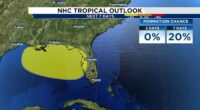Share this @internewscast.com

(NerdWallet) – On July 4, President Donald Trump enacted his “big, beautiful bill,” altering health insurance coverage for many Americans.
If you’re enrolled in a marketplace health insurance plan, also referred to as Obamacare or Affordable Care Act (ACA) plans, your premiums could increase, and you might have to put in more effort to maintain your eligibility.
Here are a few key changes to marketplace health insurance in the new law — plus one thing that went unaddressed — and what to do about them.
1. Premiums might get much pricier
Current system: Premium tax credits assist taxpayers in affording marketplace health insurance premiums. Since 2021, enhanced premium tax credits have been expanded and increased for a wider range of individuals.
In states using HealthCare.gov, enhanced tax credits made subsidized premiums about $624 less expensive per year in 2024. That’s according to estimates by KFF, a health policy nonprofit.
Enhanced subsidies are set to expire after 2025. Smaller tax credits — and therefore more expensive premiums — go back into effect starting in 2026.
What’s changing: The new law was an opportunity for Congress to extend the enhanced subsidies. It did not.
If the enhanced subsidies expire, marketplace health insurance members at all income levels will pay more. Net premiums would rise by 25% to 100%, depending on income, according to estimates by the Commonwealth Fund, a health care policy think tank.
Expiring subsidies would lead to 4.2 million more people without health insurance by 2034, according to the nonpartisan Congressional Budget Office.
What to do about it: It’s still possible for Congress to extend the enhanced subsidies before they expire. You can contact your members of Congress about potential changes.
If subsidies expire, you might need to budget for higher premiums. You could also consider other ways to get health insurance if marketplace plans are no longer affordable.
2. You’ll need to re-enroll for subsidies every year
How it works now: Currently, people with marketplace health insurance are automatically re-enrolled for the next year. You can also stay eligible for premium tax credits and cost-sharing reductions. Eligibility is automatically checked using your original application information and updated tax data.
Nearly 11 million people were automatically re-enrolled in health insurance marketplace plans for 2025, according to the Centers for Medicare & Medicaid Services. That’s about 44% of total members.
What’s changing: Under the new law, your eligibility for premium tax credits and/or cost-sharing reductions doesn’t carry over from year to year.
To keep those subsidies, you’ll need to re-verify your eligibility. Otherwise, your premiums and/or out-of-pocket costs will go up — potentially by hundreds of dollars per month.
Changes go into effect starting in tax year 2028.
What to do about it: Take action each year during open enrollment, even if you want to keep the same plan. To keep your subsidies, be ready to provide information about:
- Household income.
- Family size.
- Address.
- Immigration status.
- Other health coverage you have or are eligible for.
3. Enrollment will be more restricted for people with low income
How it works now: If your income is at or below 150% of the federal poverty level (FPL), you have a year-round special enrollment period. That means you can sign up for marketplace health insurance any time without waiting for open enrollment. You can also qualify for premium tax credits and cost-sharing reductions.
What’s changing: Under the new law, if you apply during this income-based special enrollment period, you can’t qualify for premium tax credits or cost-sharing reductions. (Other types of special enrollment periods are unchanged.)
The change takes effect starting in the 2026 plan year.
What to do about it: If possible, plan to apply for coverage during open enrollment. Open enrollment in most states runs from Nov. 1 to Jan. 15. (Some state marketplaces use different dates.)
If you enroll under a different kind of special enrollment period, you could get subsidies. For example, you might qualify if you’ve lost other health coverage, moved, gotten married or divorced, or had a baby.
4. Some immigrants will lose premium tax credits
How it works now: Lawfully present immigrants can get marketplace health insurance plans. They can also qualify for subsidies.
What’s changing: Under the new law, only certain categories of immigrants qualify for marketplace coverage and subsidies:
- Lawful permanent residents (green card holders).
- Certain Cuban and Haitian immigrants.
- Immigrants covered by a Compact of Free Association.
Others no longer qualify, even if lawfully present. Examples could include refugees, asylees and people with temporary protected status. Changes take effect starting in tax year 2027.
What to do about it: Check whether your immigration status makes you eligible for coverage and subsidies. If not, you might need to find another source of insurance.
5. Advance premium tax credits will be riskier
How it works now: Advance premium tax credits pay for some or all of your health insurance premiums. Credit amounts are based on your estimated annual income.
It’s possible for your actual income to end up higher than the estimate. If that happens, you qualify for smaller tax credits and have to pay the IRS back for the difference.
You might not have to repay the full amount. There are caps based on income. For example, an individual with income below 200% of the FPL would repay no more than $375 for 2024, according to the IRS.
What’s changing: Under the new law, there’s no cap on premium tax credit repayments. People with low or no income will have to repay the full difference in amounts starting in tax year 2026.
What to do about it: Provide the best information you can on your application about your expected income. The more accurate your estimated income, the less you might have to repay.
You can choose not to take the premium tax credit in advance. Instead, you can get the credit when you file taxes. In that case, you’d avoid the possibility of needing to repay it later. But paying full, unsubsidized premiums each month could be very expensive.
“You should be aware that the IRS routinely works with taxpayers who owe amounts they cannot afford to pay,” according to the IRS website. Consider contacting the IRS to make a payment arrangement.











